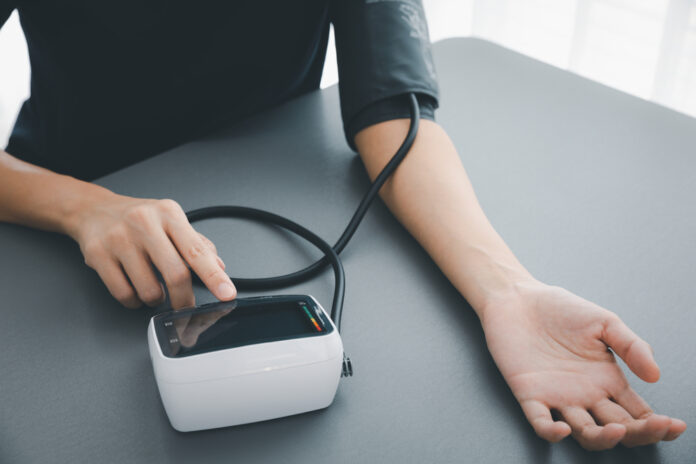
High blood pressure is known as a silent killer because it increases your risk of having a heart attack or stroke, but it does not usually cause obvious symptoms.
This article will explain what the numbers on the monitor mean and how often to get your blood pressure checked.
What is blood pressure?
Blood pressure measures the amount of pressure the blood in your circulatory system puts on the walls of your arteries.
The top number in the reading (your systolic blood pressure) shows how much pressure your blood puts on your arteries when your heart beats.
The bottom number on a blood pressure reading (your diastolic blood pressure) is how much pressure is on your artery walls between each heartbeat.
Blood pressure is measured in millimeters of mercury (mmHg).
Your doctor relies on both numbers to determine how hard your heart works to pump blood throughout your body and how healthy your arteries are.
What is considered normal, elevated, and high blood pressure?
The American Heart Association (AHA) states that normal blood pressure is below 120 mmHg systolic and below 80 mmHg diastolic.
The AHA considers elevated blood pressure to be systolic blood pressure between 120 to 129 mmHg and diastolic blood pressure below 80 mmHg.
You have hypertension (high blood pressure) if your readings are above 130 mmHg systolic or above 80 mmHg diastolic.
High blood pressure affects every organ as time goes on. However, lifestyle changes can help lower your blood pressure, and medications are also available. Once your blood pressure has been back in the normal range for a while, the damage to your brain, eyes, heart, kidneys and nervous system can be stopped.
When to check your blood pressure
If your blood pressure is within the normal range (below 120/80 mmHg), the AHA recommends that you have your blood pressure checked each time you visit your doctor or at minimum once every two years.
If you have elevated or high blood pressure, your doctor might have you come in to check it more often or have you check it yourself at home. You may need to check your blood pressure several times a day at home.
If your readings are unusually high or low, try replacing your blood pressure monitor batteries. If the readings are still off, you should schedule an appointment with your doctor.
You should go to the emergency room immediately if you have a high reading and are also experiencing chest pain, dizziness, a headache, or shortness of breath, or if your readings have been normal but are suddenly over 180/120.



















